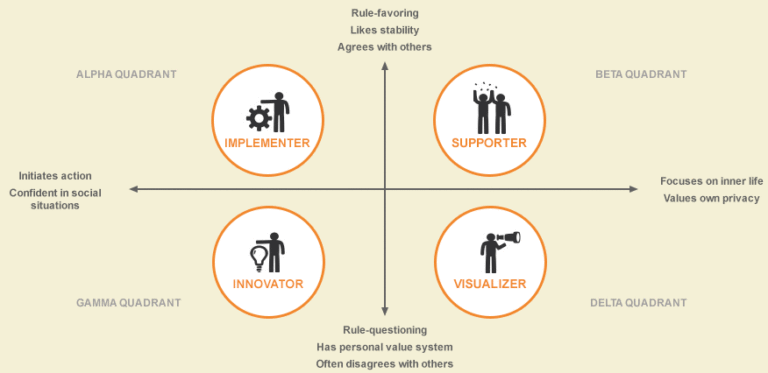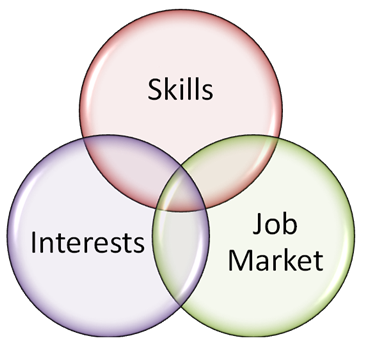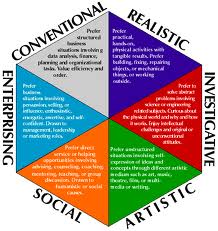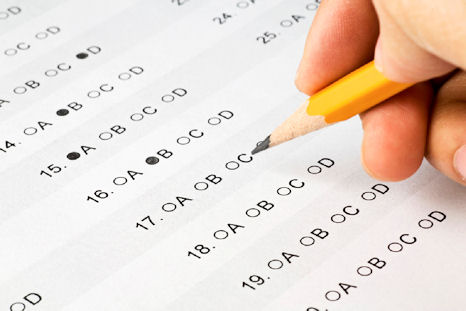Armed Services Vocational Aptitude Battery (ASVAB)
The Armed Services Vocational Aptitude Battery (ASVAB) is the most widely used multiple-aptitude test battery in the United States. CAT-ASVAB,...
Read More
Bennett Mechanical Comprehension Test
The Bennett Mechanical Comprehension Test (BMCT) measures aptitude to comprehend mechanical applications in realistic situations. The original form was published...
Read More
Butcher Treatment Planning Inventory (BTPI)
The Butcher Treatment Planning Inventory (BTPI) is a behaviorally oriented, 210-item, true-or-false measure of factors relevant to psychological treatment planning....
Read More
California Psychological Inventory (CPI)
The California Psychological Inventory (CPI) was first published in 1956. It has a historical relationship to the Minnesota Multiphasic Personality...
Read More
Campbell Interest and Skill Survey (CISS)
The Campbell Interest and Skill Survey (CISS), developed by David P. Campbell, measures self-reported interests and skills. Used primarily in...
Read More
Career Decision Scale (CDS)
Samuel H. Osipow, with a colleague and several graduate students, developed the Career Decision Scale (CDS) at The Ohio State...
Read More
Career Development Inventory (CDI)
Interest inventories are commonly used to assist high school and college students with vocational choices. However, the results of such...
Read More
Career Thoughts Inventory (CTI)
The Career Thoughts Inventory (CTI) is a theory-based assessment and intervention resource intended to improve thinking in career problem solving...
Read More
Differential Aptitude Testing
An individual’s career development and success are influenced by the attributes that differentiate that person from other people. These individual...
Read More
General Aptitude Test Battery (GATB)
The General Aptitude Test Battery (GATB) is a work-related multiple-ability assessment developed by the U.S. Employment Service (USES), a division...
Read More
Modal Personality
Modal personality was the term used by anthropologist Cora DuBois in her 1944 monograph The Peoples of Alor: A Social-Psychological...
Read More
Anthropological Models
Models are simplified representations of reality that help people to handle the largely undifferentiated mass of stimuli that impinges on...
Read More
Modjokerto
In 1936, Ralph von Koenigswald announced the discovery of a fossil cranium from a very young child outside the village...
Read More
Mohenjo Daro
Since the beginning of excavation at this complex of mounds in 1921-1922, Mohenjo Daro became the most famous site of...
Read More
Desmond Morris
Desmond Morris has been referred to as a Renaissance man. He is widely known in both scientific and artistic circles....
Read More
Friedrich Max Muller
Friedrich Max Muller was a prominent 19th-century scholar whose voluminous writings popularized the study of Indo-European languages, comparative linguistics, mythology,...
Read More
Multiculturalism
Culture cannot be defined simply by our ethnic background. It is also family, religion, profession, interests, gender, child-rearing practices, educational...
Read More
Monasticism
Monasticism, from the Greek root meaning “alone” (mono) and from the Latin monachus (monk), refers to an institutionalized religious form...
Read More
Monkey Trial
On July 10, 1925, a high school biology teacher, John T. Scopes of Dayton, Tennessee, was charged in court with...
Read More
Clothing Bias in Identification Procedures
A bias in an identification procedure is any factor— other than recognition—that leads witnesses to select a person. Clothing bias...
Read More
Cognitive Interview
Eyewitness information is the key element in solving many crimes, yet the police are often poorly trained in conducting information-gathering...
Read More
Community Corrections
Over the past 15 years, the number of people under correctional supervision in the United States has more than doubled....
Read More
Competence Assessment for Standing Trial for Defendants with Mental Retardation (CAST*MR)
The Competence Assessment for Standing Trial for Defendants With Mental Retardation (CAST*MR) consists of 50 questions and was designed to...
Read More
Competency, Foundational and Decisional
The law in the United States requires that criminal defendants be competent to participate in the adjudicatory proceedings against them....
Read More
Competency Restoration
Evaluations of competency to stand trial are the most common source of referrals to forensic mental health practitioners. While the...
Read More
Competency Assessment Instrument (CAI)
The Competence to Stand Trial Assessment Instrument, often called the Competency Assessment Instrument (CAI), was developed in 1973 as a...
Read More
Competency for Execution
The Eighth Amendment to the U.S. Constitution prohibits cruel and unusual punishment, which, according to the U.S. Supreme Court decision...
Read More
Competency Screening Test (CST)
The Competency Screening Test (CST) was developed to address the unnecessary pretrial detention and commitment of individuals charged with crimes...
Read More
Competency to Be Sentenced
The question of whether an individual is competent to be sentenced hinges on the broader question “What is competence?” In...
Read More
Team Attributions ⋆ Sports Psychology ⋆ Lifestyle
Although there are an almost infinite number of possible team attributions, attributions are best understood when classified into underlying dimensions. ...
Read More
Youth And Sports ⋆ Sports Psychology ⋆ Lifestyle
Organized youth sport became popular in the 1920s (in the United Kingdom, at least) in part based on the idea ...
Read More
Coach–Athlete Relations ⋆ Sports Psychology ⋆ Lifestyle
The coach–athlete relationship is a unique interpersonal relationship characterized by mutually and interconnected thoughts, feelings, and emotions between an athlete ...
Read More
Friendships and Peer Relationships ⋆ Sports Psychology ⋆ Lifestyle
Peers have a particularly powerful social influence on youth development, particularly during adolescence. Positive peer interactions can help adolescents acquire...
Read More
Parenting and Sport ⋆ Sports Psychology ⋆ Lifestyle
The developmental psychologist Jacquelynne Eccles suggested that parents influence their children’s involvement in sport in three ways: as providers, role ...
Read More
Participation Motives ⋆ Sports Psychology ⋆ Lifestyle
The most commonly and consistently cited motives for participating in sport are developing and displaying competence (from learning new skills),...
Read More
Talent Development ⋆ Sports Psychology ⋆ Lifestyle
How do talented children become elite adult athletes? Many young people start on the road toward becoming professional athletes, but ...
Read More
Accidents ⋆ Health Psychology ⋆ Lifestyle
Accidental injuries (also called unintentional injuries) are a significant public health problem in the United States. Unintentional injuries accounted for...
Read More
Aging ⋆ Health Psychology ⋆ Lifestyle
Demographics of Aging Older adults represent a large and growing segment of the population, both in the United States and...
Read More
Alcoholism ⋆ Health Psychology ⋆ Lifestyle
According to recent national surveys, most noninstitutionalized individuals in the United States who are 12 years of age or older...
Read More
Gender and Journalism
Gender and journalism became a popular area of study in the mid-1990s when gender in media studies gained recognition as...
Read More
Interpretive Journalism
Interpretive (or interpretative) journalism goes beyond the basic facts of an event or topic to provide context, analysis, and possible...
Read More
Interview as Journalistic Form
Within journalism, the interview is traditionally known as a tool for gathering story material, but it is also a finished...
Read More
Investigative Reporting
Investigative journalism is the product of independent work by reporters and editors, which reveals a public or social issue that...
Read More
Journalism Education
Journalism education is instruction for work in the news departments of media organizations, both print and electronic. The instruction can...
Read More
Journalism: Group Dynamics
Several factors shape journalists’ everyday news decisions, their general concepts of what is newsworthy, and their understanding of quality, as...
Read More
History of Journalism
The history of journalism, inclusively defined, encompasses the history of news and news media, including, among other things, the history...
Read More
Journalism: Normative Theories
Normative theories of journalism concern ideal functions of the press, what the press should do. These purposes are best understood...
Read More
Credibility of Journalists
Credibility is a central professional value for journalists. For audiences, perceived credibility of the media affects choices of and responses...
Read More
Journalists: Professional Associations
Joining a professional journalist association usually requires gaining one’s main livelihood by working fulltime in the editorial department of a...
Read More

















































